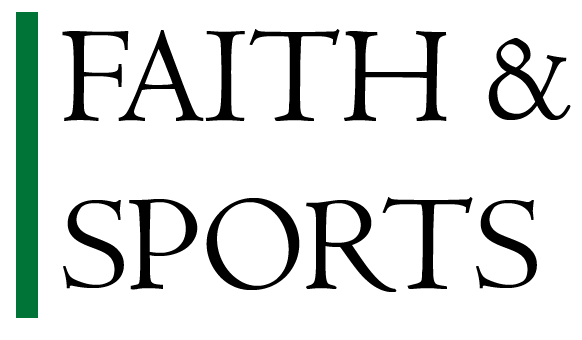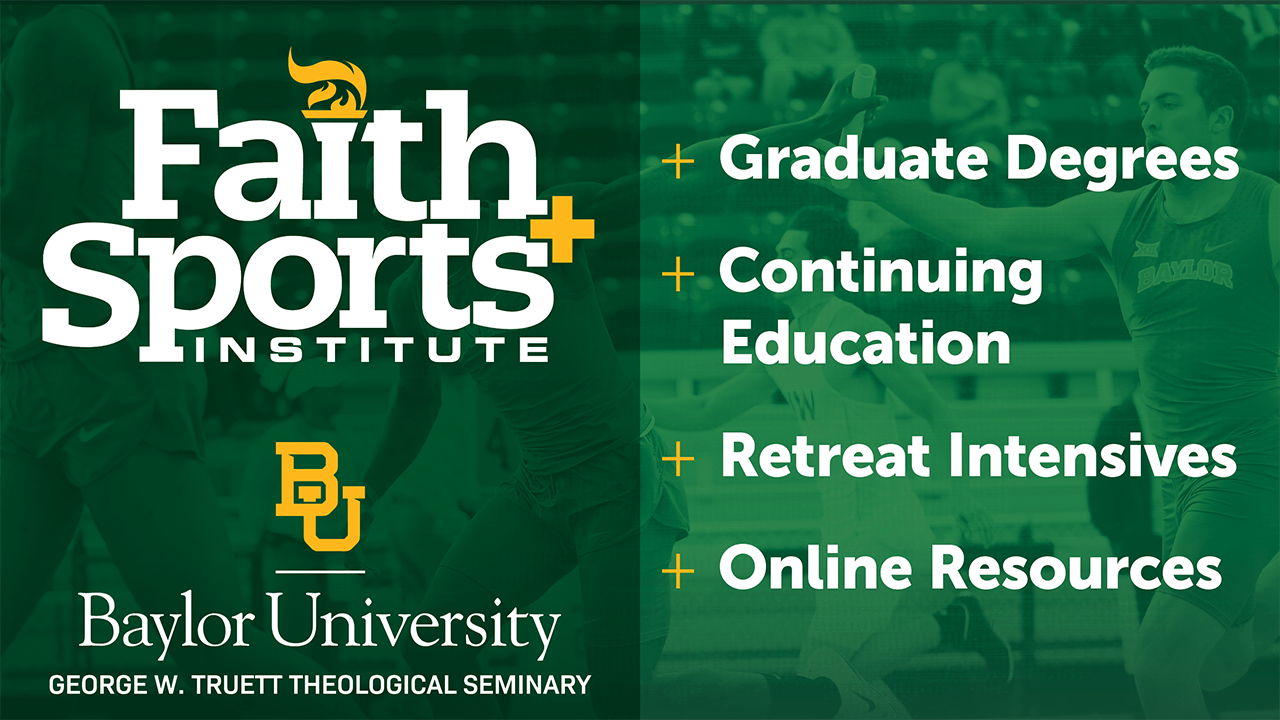Editor’s note: To help Christian sportspeople navigate these uncertain times, we will be publishing a series of posts focused on what it looks like to “Run The Race Well” in a time of coronavirus and quarantine. We will be getting contributions from a variety of perspectives: theologians, philosophers, athletes, coaches, mental health professionals, seminary students, and more. This post comes from Art Remillard, a professor of religious studies at Saint Francis University and a former college runner.
Art Remillard
“In the beginning” is a great way to start any story, but especially origin stories.
This is where Genesis starts, after all—and for good reason. These five syllables do the work of transporting us to a different time and place, where we witness a world coming into being in all of its majestic wonder.
In addition to watching, though, we are invited to make sense of these events, and to bring our insights back into our own worlds. This is precisely what Pope Francis does in his encyclical on the environment, enlisting the creation accounts of Genesis to place a theological frame around what he calls “integral ecology”—the understanding that God, humans, and creation exist together as a deeply interconnected familial bond that requires attentiveness, care, and love.
Stories of origin can come in all shapes and sizes. Not only are they at the heart of many religious traditions, but each of us has our own stories of beginnings. Our careers, relationships, and spiritual identities all started somewhere. The same is true of our athletic pursuits. Ask any athlete, and they can probably pinpoint the exact moment when they came to realize their profound connection to a given sport.
My own origin story of becoming a lifelong distance runner starts in the spring of 1990. As a short, scrawny, and not terribly coordinated sixteen-year-old, I had hopes of earning a varsity letter in track and field. After quickly discovering that hurdling was beyond my capabilities, I decided to align with the distance runners. My first day with this group started on a terrifying note, though, when I learned that the task ahead of us was a six-mile loop.
I repeat… Six miles.
Without stopping.
I had never run more than one mile at a time, maybe two. So I was certain that this would be my first and last day with this group.
But then a generous pair of experienced runners made sure that I finished. They also made sure that I learned that distance running was not just about sweat, lactic acid, and laboring breaths. It was also about camaraderie, encouragement, and laughter.
A lot of laughter.
This is the story that I tell about how I started running because this was the moment when an insecure teenager found a sense of belonging, joy, and purpose. In the years that have followed, running would continue to intersect with many of my most cherished memories and relationships. I met my wife through running. To this day, our “dates” sometimes include runs on the very same roads where I ran my first miles those many years ago.
In the past few weeks, I have found it evermore important to reconnect with the roots of why I run. The news cycle and the looming fear of COVID-19 have often consumed my attention, adding more anxiety with each new development.
But throughout it all, my runs have remained a place to regroup and refocus, to bring to the surface all of those things that add real value to my life.
These are the lessons that I started to learn “in the beginning” when I first stepped out onto that six-mile run. Indeed, stories of origin have an enduring power because we can return to them over and over again to help us make sense of things.
My hope is that each of you can use this time of brokenness to break open your own origin stories—whether athletic, spiritual, or otherwise. In doing so, even during the pandemic, you might just discover what these stories can tell you about yourself and your place in the world.
 About the author: Art Remillard is Professor of Religious Studies and Director of the Wolf-Kuhn Ethics Institute at Saint Francis University in Loretto, Pennsylvania. He is co-editor along with Rebecca Alpert of Gods, Games, and Globalization: New Perspectives on Religion and Sports and he is currently writing a religious history of sports in America. In college, he ran cross country and track and continues to compete on occasion in races ranging in distance from the mile to the marathon.
About the author: Art Remillard is Professor of Religious Studies and Director of the Wolf-Kuhn Ethics Institute at Saint Francis University in Loretto, Pennsylvania. He is co-editor along with Rebecca Alpert of Gods, Games, and Globalization: New Perspectives on Religion and Sports and he is currently writing a religious history of sports in America. In college, he ran cross country and track and continues to compete on occasion in races ranging in distance from the mile to the marathon.






